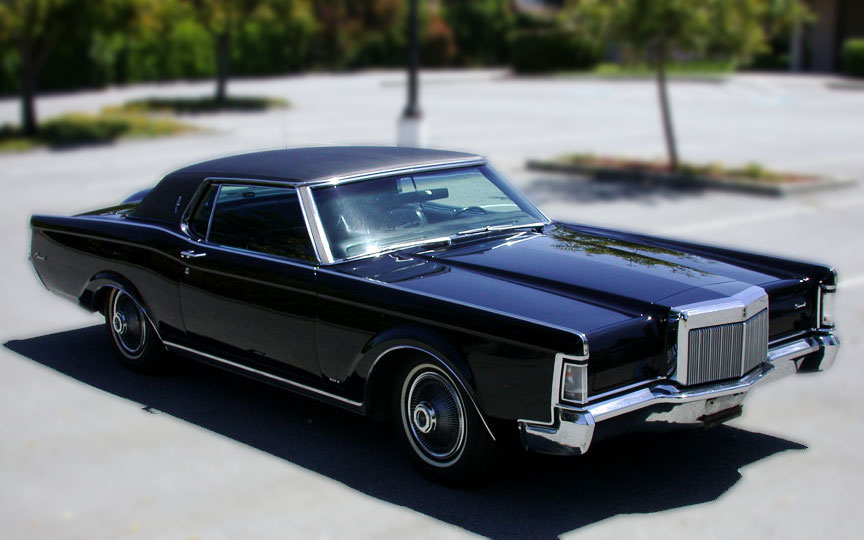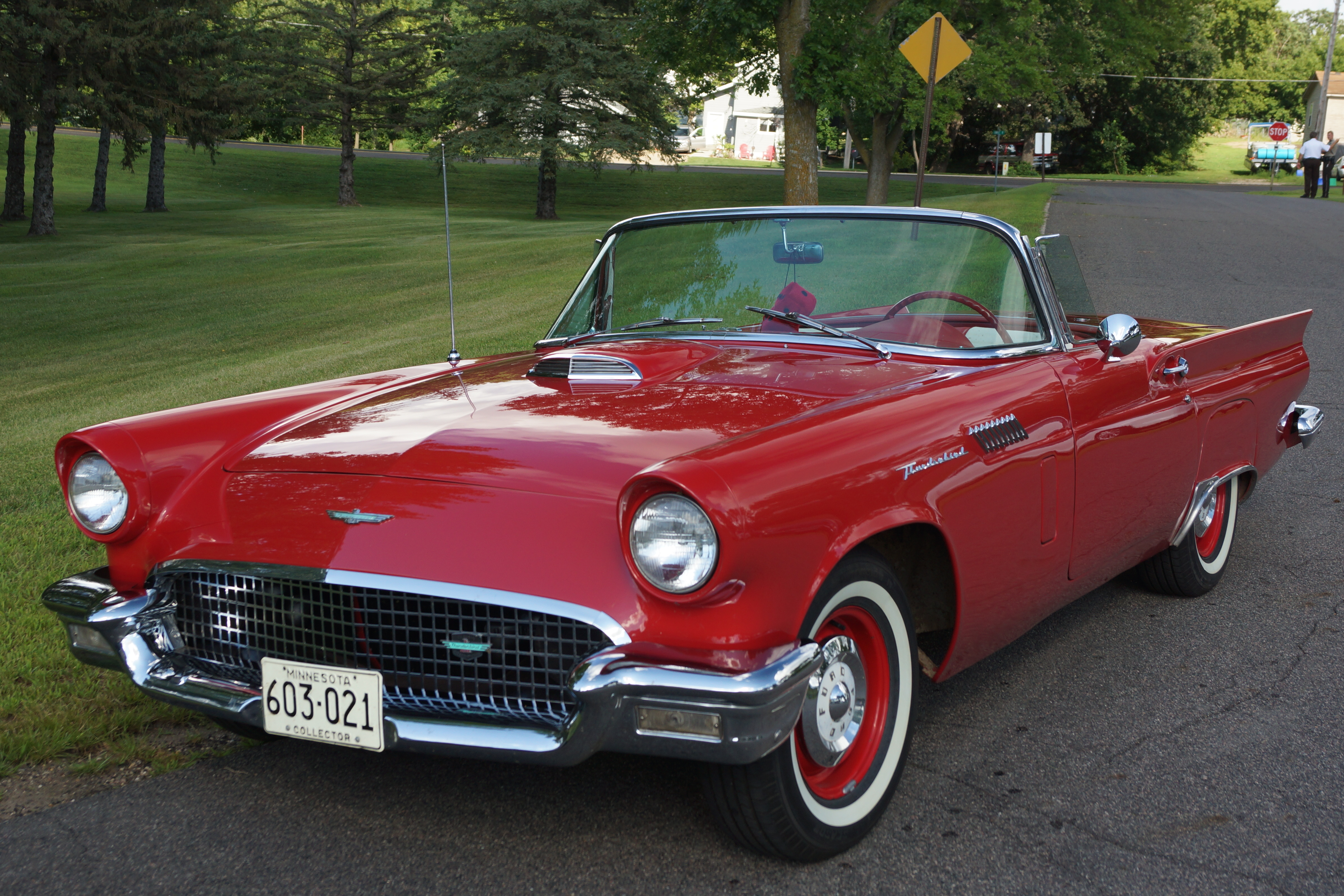From Icons to Ignored: 17 Boomer Favorite Cars Millennials Left Behind

The automotive landscape is as diverse as the generations that drive it, and there’s a poignant tale of nostalgia and revolution in the cars that boomers once cherished. These vehicles, many of which are now relics of a bygone era, symbolize not just a mode of transportation but a chapter in American history that millennials, for the most part, seem to overlook. Let’s journey through the 10 boomer favorite cars that millennials have left behind, diving into what made each of these vehicles iconic in their time.

1. **Plymouth Road Runner**: Launched in 1968, the Plymouth Road Runner was the epitome of budget-friendly muscle cars. Its powerful engine and distinctive branding—featuring the beloved Looney Tunes character—captured the hearts of boomers. However, millennials often disregard this classic, favoring vehicles that emphasize fuel efficiency, a stark contrast to the Road Runner’s gas-guzzling reputation.

2. **AMC Pacer**: The AMC Pacer was known as “the first wide small car,” and its unique rounded design made it stand out on the road. With a spacious interior that boomers found appealing, this vehicle was revolutionary for its time. Today, millennials often miss the groundbreaking nature of the Pacer, viewing it through a lens of practicality that doesn’t consider its historical significance.

3. **Ford Galaxie**: With its sleek lines and powerful V8 engine, the Ford Galaxie was a symbol of luxury in the 1960s. Boomers loved its combination of style and performance, but it’s largely forgotten among millennials who lean towards modern cars equipped with the latest technology and efficiency features.

4. **Oldsmobile Toronado**: Debuting in 1966, the Oldsmobile Toronado was a game-changer as America’s first front-wheel-drive car in decades. It embodied luxury and advanced engineering of the time. However, millennials often view it as requiring more maintenance than it’s worth, prioritizing reliability over nostalgia.

5. **Mercury Cougar**: Initially designed to compete with the Ford Mustang, the Mercury Cougar was a blend of elegance and sportiness that appealed to many boomers. Despite its stylish design, millennials typically prefer modern sports cars that offer eco-friendliness and advanced technologies over the Cougar’s classic aesthetics.

6. **Chevrolet El Camino**: This vehicle was the lovechild of a truck and a coupe, offering utility and style. It resonated well with boomers, but millennials often see it as impractical compared to today’s more efficient vehicles. The El Camino’s mixed identity struggles to find a place in the millennial market.

7. **Pontiac Firebird Trans Am**: Famous for its appearances in pop culture, particularly in films and TV shows, the Firebird Trans Am was a performance powerhouse. While it holds a special place in boomers’ hearts, millennials often overlook its high fuel consumption and emissions, which don’t align with their eco-conscious values.

8. **Cadillac Eldorado**: Once a symbol of American luxury and success, the Cadillac Eldorado was massive and opulent. Boomers revered it as the epitome of status, while millennials often dismiss it as an outdated relic that fails to meet modern standards of environmental responsibility.

9. **Buick Riviera**: Known for its powerful performance and chic design, the Buick Riviera was a cutting-edge vehicle of the 1960s. However, millennials regard it as lacking the modern technology they desire, making it less appealing in today’s market.

10. **Dodge Charger**: The original Dodge Charger from the ’60s is iconic for its power and style. Although it has a modern counterpart, many millennials see the classic version as less appealing due to its inefficiency in a world that’s increasingly focused on sustainability and fuel economy.

11. **AMC Gremlin**: Launched in 1970, the AMC Gremlin was known for its quirky charm and distinctive design, making it an unforgettable part of automotive history. With its compact size and affordable price, it was a hit among young families during its time. However, millennials often overlook its unique character, opting instead for more conventional and practical vehicles that prioritize efficiency and reliability over nostalgia.

12. **Lincoln Continental Mark III**: The Lincoln Continental Mark III is a symbol of luxury from the late 1960s that epitomized elegance and power. Known for its smooth ride and plush interiors, it attracted many affluent boomers. Today, however, millennials find it less appealing, as the lavish features don’t resonate with their values, which lean more towards sustainability and technology-centric vehicles.

13. **Studebaker Avanti**: The Studebaker Avanti was ahead of its time with innovative styling and performance. This sporty coupe was a trendsetter, boasting features that often preceded mainstream automotive advancements. Yet, as appealing as it was to boomers, millennials often dismiss it due to its outdated technology and lack of modern amenities, favoring more current designs that incorporate smart tech and eco-friendly elements.

14. **Ford Thunderbird**: The Ford Thunderbird has long been celebrated as a classic American car, blending luxury and performance in a stylish package. Its elegant design and spacious interior made it a favorite among boomers. Despite its iconic status, millennials often shy away from the Thunderbird, viewing it as a relic of the past that lacks the fuel efficiency and contemporary features they seek in a vehicle today.

15. **Chevrolet Corvair**: The Chevrolet Corvair was a revolutionary car for its time with a rear-engine design, making it stand out in the 1960s. Unfortunately, the safety concerns surrounding its reputation have tainted millennials’ perception of this classic. They tend to steer clear of the Corvair, favoring vehicles that promise improved safety ratings and modern engineering, leaving this once-coveted ride in the dust.

16. **Chrysler Imperial**: Known for its luxury and prestige, the Chrysler Imperial was once a symbol of wealth and status on the road. However, as millennials prioritize efficiency and environmental consciousness, they are less inclined to embrace vehicles with hefty fuel consumption and larger bodies that don’t align with their needs. The Imperial, with its grandeur, feels out of place in the era of compact, eco-friendly cars.

17. **Pontiac GTO**: Often hailed as the original muscle car, the Pontiac GTO played a pivotal role in American automotive history, thrilling boomers with its power and performance. Despite its legendary status, millennials now focus on the practicality of fuel efficiency, making the GTO less appealing as they opt for vehicles that harmonize with their sustainable lifestyle choices.

As we wrap up this exploration of classic cars and the generational shift in preferences, it’s clear that the allure of boomers’ favorite vehicles doesn’t resonate with millennials in the same way. The automotive world is constantly evolving, with younger generations prioritizing technology, sustainability, and practicality over nostalgia. This generational divide highlights a broader cultural shift in how society views cars, moving from iconic symbols of freedom to essential tools for everyday life. While these classic cars hold a special place in the hearts of boomers, the next generation is carving out its own path—one that embraces innovation and eco-conscious choices. As we look to the future of the automotive industry, it’s fascinating to see how these preferences will shape the cars we drive and the culture surrounding them for years to come.
Related posts:
18 Classic Cars Loved by Boomers but Snubbed by Millennials
Each generation’s favorite classic cars
What are the Favorite Cars for Every Generation?
Discover more from Auto Travel World
Subscribe to get the latest posts sent to your email.












